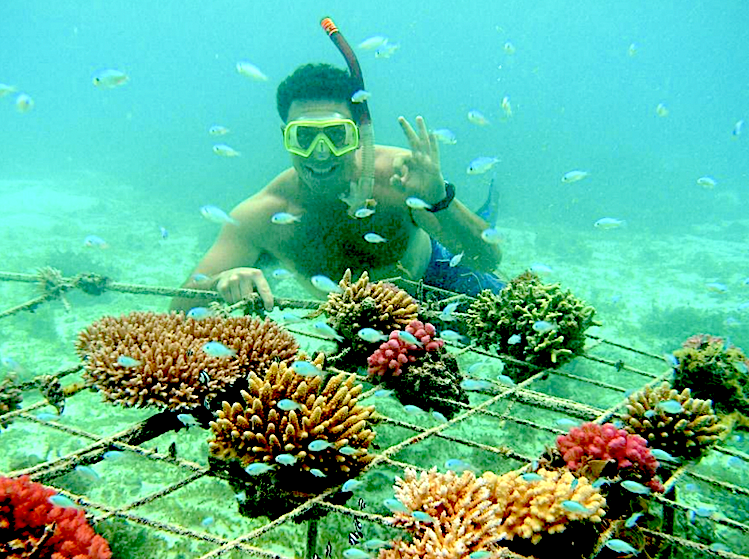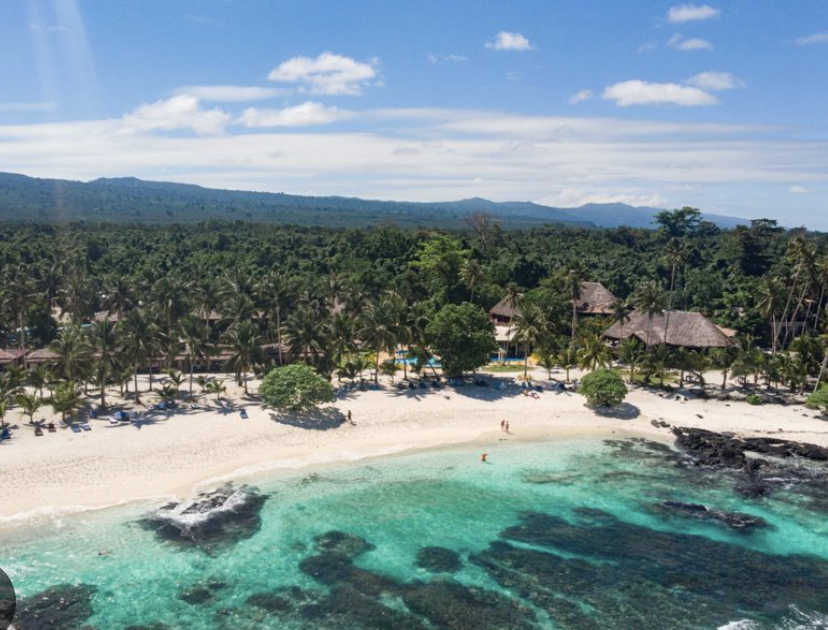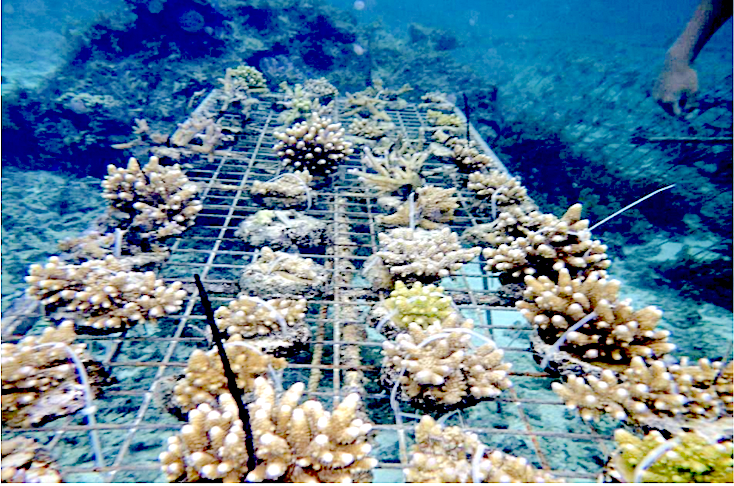
By Staff Writer
A popular tourist resort on the south side of Upolu Is. is firing up guest interests with a coral conservation project along its seafront marine reserve.
The Return to Paradise Resort coordinates the project where guests are encouraged to be involved with coral planting and tending.
The resort staff harvest the selected corals where guests are invited to assist.
New corals are attached to ropes and frames and then taken out to the marine reserve to grow.
Guests joining staff in the reserve, clean the weeds and any slime from the new growing corals and from the immediate surrounding areas.
The seaweed is taken back to shore for drying and then recycled as fertilizer in the resort gardens.

Resort guests join these activities as a new tour starting with a video question and answer session on how coral conservation works.
Guests are then taken to the reserve and given transport, snorkels, masks, flippers, and safety gear.
Trained guides then show participants how to attach the corals to the ropes and frames, and also to tend the coral reserve.
After around two hours of working, guests return to the shore for a de-briefing before returning to the Resort.
The partnership project is seeing an increasing number of frames with healthy heat-resistant corals being planted and growing in the rope frames developed in the Resort’s marine reserve.

This partnership is between the village, who have agreed to declare the entire one-kilometer length of the seafront out to the
reef in front of the Resorts’ leased lands as a marine reserve.
The village matai have agreed that if they forego fishing now,
there will be fish stocks for the future.
The project is overseen by local coral charity Reefs of Hope under the supervision of two specialized Marine biologists, Dr
Austin Bowden-Kirby (USA, based in Fiji) and Annelise McDougal (Australia) who oversee the project, and the Resort which
provides labour and materials to build the frames on which the new corals are grown.

It is a well-known fact that all over the world, coral reefs are under stress due to rising ocean temperatures and massive coral
bleaching are killing the reefs.
The science behind the conservation is simple. When there is a bleaching, some corals survive.
These therefore must be resistant to higher levels of stress. So cuttings are taken from these tougher corals and propagated
in the marine reserve.
Once they grow to a mature size, they can be replanted elsewhere on the reef where they continue to grow and propagate.

A marine reserve is essential because in this delicate ecosystem the various types of tropical fish tend the corals, eat the weeds and keep the corals clean.